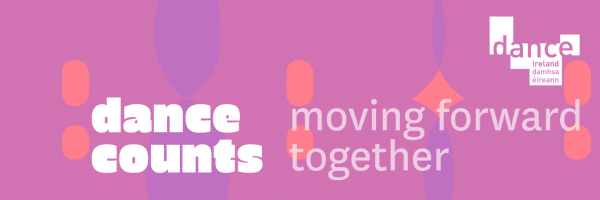Dance Counts: Moving Forward Together
Dance Ireland with Theatre and Dance NI has launched the Dance Counts Report 2022, a major undertaking of research over the past three years into living and working conditions in the dance sector on the island of Ireland.
This report, which is available as an online resource on the Dance Ireland website, provides much needed information and evidence to support the sector’s shared call for increased support and investment in dance as an inclusive art-form, and as a central part of life and culture on the island of Ireland.
Commissioned by Dance Ireland in collaboration with Theatre and Dance NI, the Dance Counts Report highlights the ongoing challenges faced by dance artists and arts workers across the island of Ireland across four key areas:
- The Costs of Dance – exploring the financial precarity of a career as a performer or maker, the real costs in producing dance, and the lack of funding parity across borders and with other art forms.
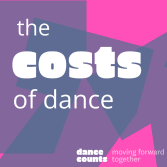
- Spaces for Dance – examining where individuals access dance work, the quality and experience of those sites, and the importance of space for dancing with others.
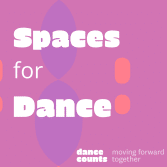
- Wellbeing and Caring – considering areas such as work-life balance, physical wellbeing and the impact of juggling caring responsibilities and work in dance.
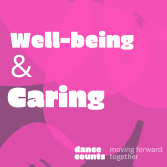
- Education and Training – addressing the ongoing issues related to training and continued professional development for those pursuing or seeking to pursue a career in dance.
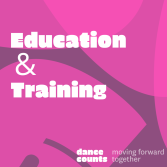
Data outlined in the report includes:
- 59% of survey respondents reported a total annual personal income of under €20,000 with 60% reporting a total annual household income of under €40,000. – 18% reported that the majority of their work is unpaid.
- Dance practitioners are highly educated: over 50% of Dance Counts survey respondents have been educated to post graduate level.
- Career development: 60% said they need to leave the island to engage in professionally accredited training.
The report employed a unique methodology using mixed methods in dance and social science, including embodied qualitative research from dancers. The research raised the issue of the discrepancy in funding opportunities for dance artists North and South of the border, with these being significantly more limited in Northern Ireland. The report highlighted that limited full-time professional dance training is a barrier to the development of dance on the island to which respondents also drew attention to the need to integrate dance education into the school curricula.
Niamh Flanagan, Executive Director of Theatre & Dance NI said: “We really value the collaboration with Dance Ireland in this effort to strategically pool our resources and expertise in undertaking this research and building the knowledge about the lives and lived experiences of our artists. We have gained vital insights into the challenging realities faced by our professional dance practitioners through both the Dance Conversations and Dance Counts research. The work has highlighted the continued financial precarity of those working in dance and the need for urgent change to improve their rates of pay, working conditions, and care for their wellbeing. Notable, too, is the disparity in investment and more limited support for artists in Northern Ireland. Amid a cost-of-living crisis following the pandemic, in a post-conflict and Brexit landscape; this research also highlights the urgent need to strengthen opportunities for networking, cross-border dialogue and artistic exchange; develop working partnerships, and investment in dance education. We will continue to work with our partners to elevate the voice of our dancers and dance sector through this research and continued advocacy.”
Sheila Creevey, CEO of Dance Ireland said: “A key part of Dance Ireland’s role as the national development and representative organisation for professional dance in Ireland is to support and advocate for artists and arts workers in the dance sector. The Dance Counts and Dance Conversations research provides an important picture of the conditions in the sector at a key moment in our culture as we exit the pandemic and face a cost-of living crisis. This research, which has been supported with cross sector partnerships and funding on an all-island basis, will be a solid foundation for our strategy as an organisation, and continued advocacy for dance to be a viable and sustainable career. Dance Ireland is committed to continued investment in research, raising the visibility of those working professionally in dance, and awareness of how dance plays a vital role in our national culture.”
Explore the Online Resource here
The Dance Counts Report is co-authored by Dr Peter Campbell (University of Liverpool), Dr Victoria Durrer (University College Dublin), and Dr Aoife McGrath (Queens University Belfast), and is part of a wider body of research initiated with the Co-Motion Conference held in Belfast (2019). This includes the Dance Think Tanks Report by McGrath (2020) commissioned by Dublin Dance Festival, Dance Limerick, and Dance Ireland; the Dance Counts Survey 2021 by Campbell, and Dance Conversations by Durrer and McGrath (2021), a study supported by the Department for Tourism, Culture, Arts, Gaeltacht, Sport, and Media under the Cooperation with Northern Ireland Funding scheme.
Notes:
- The Dance Counts report employs a unique methodology using mixed methods in dance and social science, including embodied qualitative research from dancers.
- 59% of survey respondents reported a total annual personal income of under €20,000 with 60% reporting a total annual household income of under €40,000.
- 68% of respondents did not have a pension.
- 18% reported that the majority of their work is unpaid.
- The research raised the issue of the discrepancy in funding opportunities for dance artists North and South of the border, with these being significantly more limited in Northern Ireland.
- Dance practitioners are highly educated: just over 50% of Dance Counts survey respondents have been educated to post graduate level.
- Career development: 60% said they need to leave the island to engage in professionally accredited training.
- Limited full-time professional dance training is a barrier to the development of dance on the island.
- Respondents also drew attention to the need to integrate dance education into the school curricula.
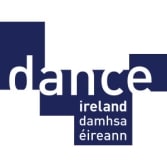

Contact: Louise Costelloe, Dance Ireland louise.costelloe@danceireland.ie or 01 8558800
